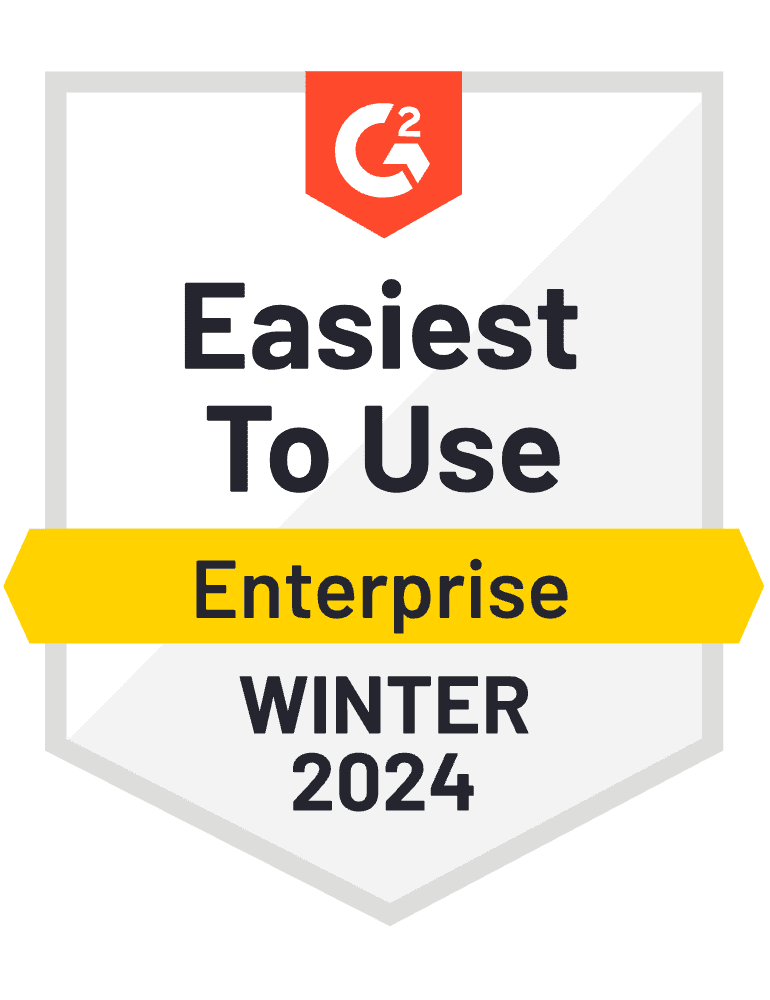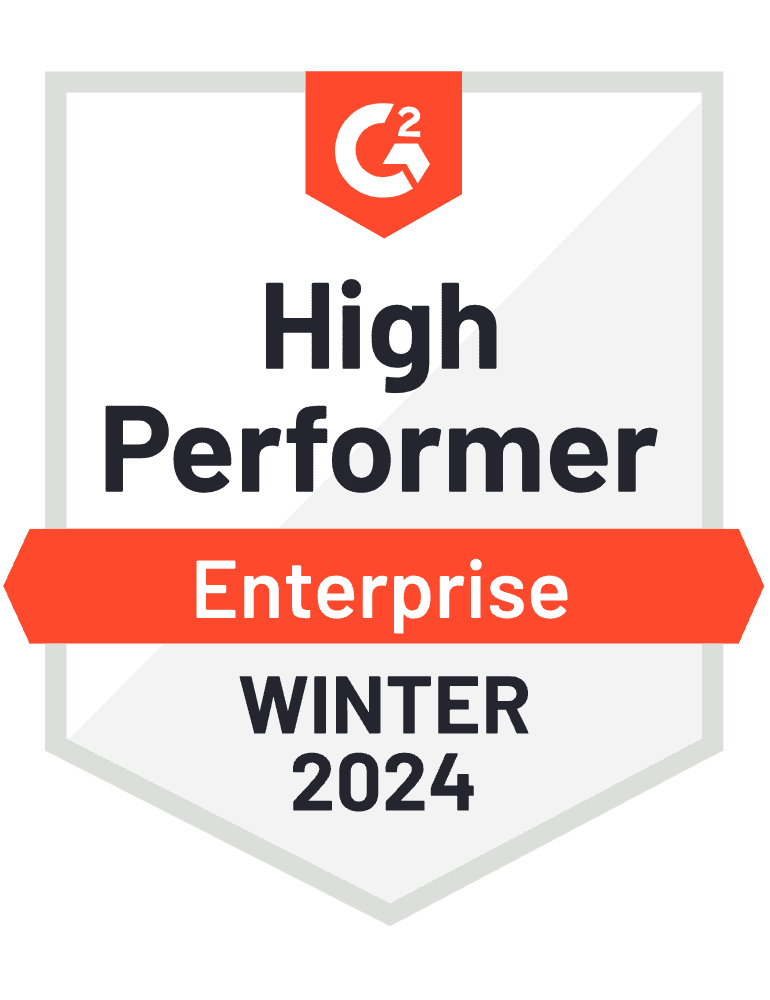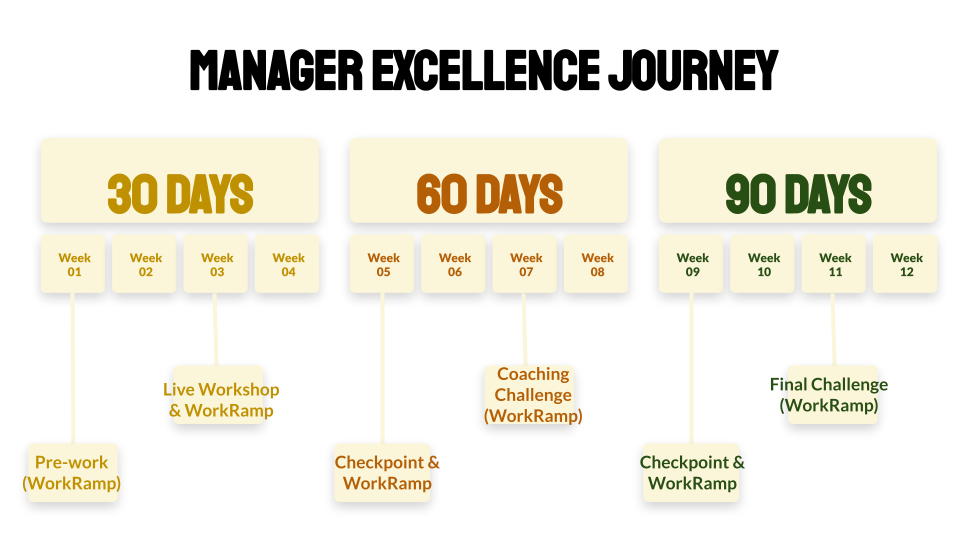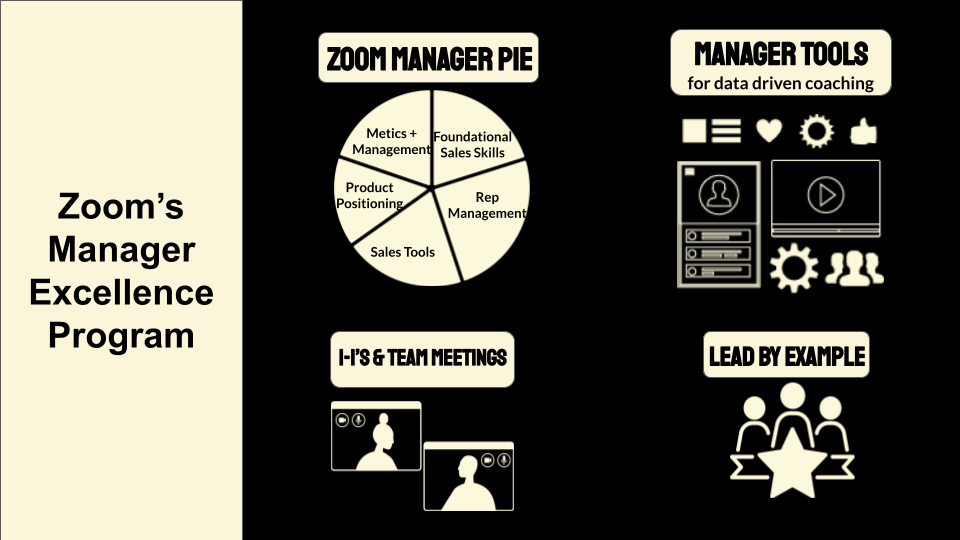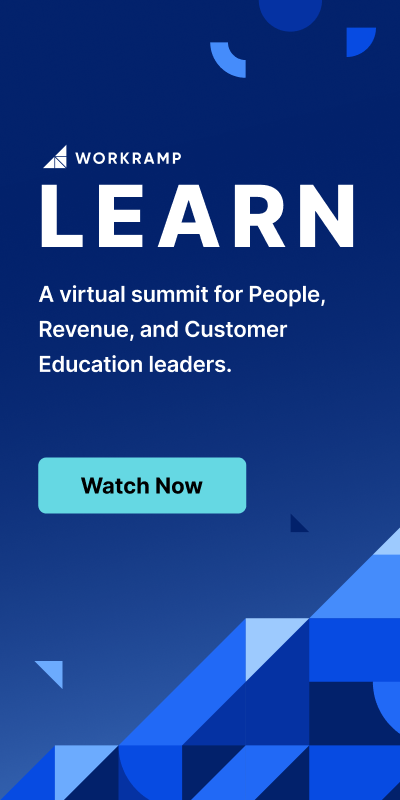AMA with Rich Adams – Zoom’s Playbook on Sales Manager Enablement
admin
Learning Tips Straight to Your Inbox
Top reps don’t naturally transition into great managers without the proper training and support; that’s why Zoom Communications launched its Manager Excellence Program. Great sales managers can become the critical levers to increase revenue performance and crush quotas.
In this AMA with Rich Adams, we’re exploring the inner workings of his robust Sales Manager Enablement Program at Zoom, focused on the 90 day onboarding program for new-to-the-business management hires and newly promoted managers. Rich was excited to share his experiences and learnings from onboarding the first cohorts of Zoom’s frontline managers.
In this post:
Architecting the 90-Day Manager Onboarding
How often do you run the 90 day Manager Program?
Currently, we have a quarterly cadence for all 3 regions–EMEA (Europe), APAC (Asia), and AMER (North America). For example, in February, we wrapped up our EMEA Program, and we finished up our APAC last night. We’ll be kicking off our AMER cohort later this month.
Sometimes they all run concurrently–or we have a little bit of breathing room between each one. It really depends on the pace of hiring and who’s gone through the program. It’s different from planning a normal AE Onboarding Program, because you generally know exactly how many reps you’re hiring and the pace at which you want to run your new hire program. But for manager enablement, it’s a bit up in the air.
Of course, this all might look totally different in 6 months–but this gives you an idea of where we are right now.
How do you think about cohorting your sales managers–be it by tenure or skill level?
We’re currently cohorting by regions–it’s the easiest to do, and helps you deliver onboarding quicker. But if you’re working with a large sales team, you should definitely think about tenure and segment, because if you’re part of a sales organization that has higher velocity sales (SMB) all the way up to enterprise/major accounts, your selling motions will be different. There will be fundamental things that are going to be the same from a company standpoint, and vastly different from a sales management practice.
The next step for us is to figure out how to do training across the business by segments, then tenure and experience. It’s really trial-and-error, and we’re always iterating on this.
How does the program differ for the frontline managers vs organizational leaders?
We’re fortunate to have a really robust Learning & Development function at Zoom with a ton of awesome leadership programs for frontline leaders to mid-level to executives – across all departments. Our program is designed to supplement this foundational program and train up the frontline sales manager.
Now, we do have director-level folks who will go through the program as new-to-the-business managers and definitely get a ton of value from it. Our program hasn’t matured to a point where we have specific tracks or dedication towards the different managerial levels, but that’s because our L&D team is really good at covering that side of the curriculum.
How did you work with leadership on building the Sales Manager Pie successfully?
It’s definitely a delicate balance. Sales Enablement has to be the change agent, and challenge the status quo of how things are currently done. But it’s also important to have the right balance of push-and-pull when you’re trying to get executive buy-in while challenging them on how the business has done things so far. It’s really key to form a partnership–where you’re not just taking orders from the top, and we have a two-way conversation around how we can all help elevate the current state of things.
What are some key training topics or categories that you focus on for Zoom’s Manager Excellence Program?
- Metrics – how to leverage data; how to track the right conversion rates
- Management – how to tell the story about your business; uncovering opportunity areas for your team, across segments, and in individuals
- Sales tools – how to use the tools and coach well; how to use tools to pick up trends in your business
- Sales skills – discovery, closing, pipeline management, forecasting
We’re always iterating on this–and more and more of our efforts are based on the demand, feedback and what we’re seeing in the field.
How do you build “manager champions” or program evangelists – and why is this important?
We like to spotlight managers that are doing a phenomenal job in the field, and bring them in to lead a panel discussion or a breakout on their strengths. We try to bring in as many managers into the mix to help facilitate these live training sessions. Topics vary; some are brought in as tool experts who’ve mastered usage, and some have really nailed managing remote teams. It’s an opportunity for awesome folks who are making a huge impact and deserve more than just revenue recognition.
What we’re finding is that when we give these managers an opportunity to have program input and a spotlight to share their skills, they feel that they’re making a direct and visible impact. They’re now invested in your program; this is evangelism. We now have manager champions who are out there promoting the program and giving us great feedback to help us make it even better. We also give them opportunities to help create content, be more involved in sessions, and promote our programs with their larger team. You’re basically building a mini field army–and it all starts with giving them a platform to teach and showcasing the skills that they have, which in turn shows the huge impact they’re having on the company.
Manager Toolkit – 1:1’s and Coaching
What does it mean that “1:1’s are the job” for your frontline managers?
I’m glad someone noticed my virtual background – that’s our internal slogan for our Manager Excellence Program!
When we kicked off this program last year, it was the beginning of the mandatory stay-at-home orders. And no surprise here – we found that sales managers really missed being in the office, and being a “driveby coach”. When you’re in the office, your desks are near each other, and you hear what they’re saying. You meet in the kitchen for coffee in the morning; you’re bumping into them in the hallways. You’re finding tons of opportunities to interact with your reps, coach them, mentor them, and get to know them on a personal level.
All of this goes away when you’re all working from home. 1:1’s become a real, and often the only, opportunity for you two to connect. It’s your chance to really help develop that individual, and pack in a ton of coaching and mentorship opportunities during that session. It’s a chance to dial into see what’s happening in that rep’s life.
So we decided to help our managers help architect these important moments by creating a framework that ensures that you’re having the right conversations. Yes, you can talk about all the business stuff – pipelines, deals – but you should also make time to talk about what’s going on in their lives. What’s something that’s slowing them down? Is there an opportunity for them to step away for a few days and clear their heads? If you jump on a 1:1 and someone starts harassing you about your top 3 deals and blockers, you’re going to tune out. That’s not the right mindset. A lot of our 1:1 frameworks are around uncovering behavioral stuff.
How do you coach managers on how to coach their own teams?
One size doesn’t fit all. Take sales, for example. If I use the same awful cadence or sequence and I’m blasting my customers with the same message over and over again without personalization, I’m not going to get the results. One size doesn’t fit all.
It’s really no different when you’re coaching or when you’re managing your reps. If you’re running the same plays with everyone on your team, it’s not going to work. Every person on your team is unique and each is motivated by different things, have different skill sets, and different opportunity areas. There’s no one way to coach, but there are frameworks around how you can uncover these one-to-one opportunities–to personalize.
It boils down to figuring out what tools the manager has at their disposal, how to use those tools, and uncover the narrative–where the reps are failing. For example, Caitlin is sending 2,000 emails this month and books 25 meetings. But Rachel sends 4,000 emails and doesn’t book any more meetings than Caitlin. The question shouldn’t be around how many emails Rachel’s sending, it should be about what kind or the content of the email she’s sending. What’s the strategy in place? The key here is recognizing the opportunity areas for each rep, and understanding that they’re all different.
You can’t let only the data tell the story. You have to figure out how to use the tools to uncover the narrative – to ultimately start the coaching conversation. There is a right way to have the conversation, and the right coaching tools to help you have an open dialogue about performance and feedback.
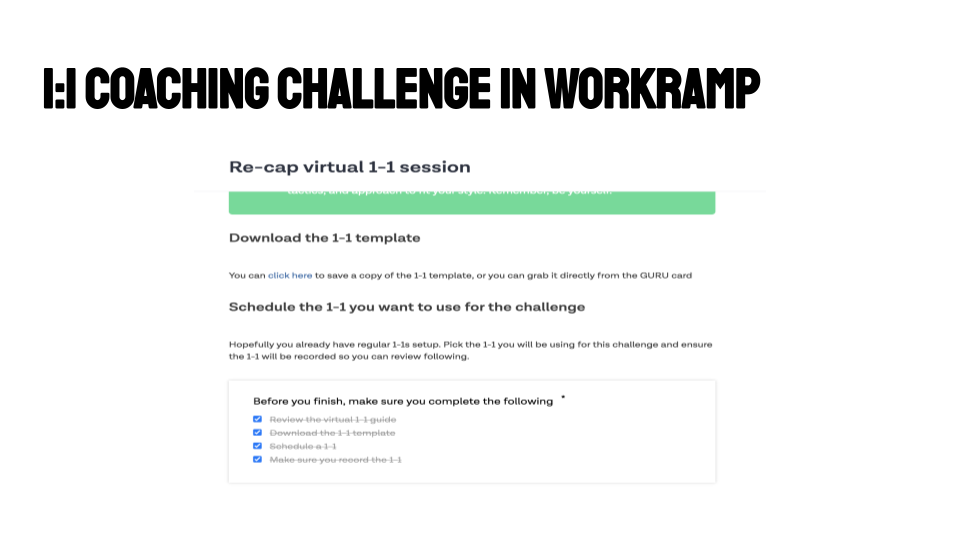
How do you hold the managers accountable for coaching their reps?
It’s definitely a work-in-progress. We have a global business where there are nuances at different levels, in different segments, and therefore different needs around these topics. We’re trying to figure out the right way to keep our managers accountable, without being overly metrics-driven. We don’t want the conversation to turn into “how many 1:1’s have you been running?” – we want there to be a qualitative piece too, and we’re trying to create a holistic, 360 view of how our managers are performing.
Program Deployment
Do you bring in external guest speakers for your live manager training sessions? If so, what topics do you have them cover that you feel would be additive?
We do bring in vendors, and we like to have them start with the foundational principle–on how to coach, lead, or whatever the topic may be. We work with the vendor to help drive that message or provide a new perspective. From there, we layer on the Zoom piece, where we coach the managers on the tools that we use at Zoom to make this happen. The goal of bringing in a vendor or external speaker is to establish the why and explaining the change management piece. Then when you layer in the internal piece, or “How we do this at Zoom”, it all clicks in.
What tweaks did you make to the program when deploying into different geographical regions?
Fortunately, we have amazing partners in our global offices that own sales and manage sales enablement resources in these different regions. Even though we’re the “owners” of our Manager Excellence Program, we work with these regional partners to understand the nuances of the challenges that their sales managers might be facing with their reps and sales cycles. This ensures that our curriculum is tied more closely to what they’re seeing on a day-to-day basis, while staying sensitive to certain topics.
We haven’t made any dramatic changes to our structure, but we’ve made minor tweaks to accommodate for sensitivity around certain topics. For example, we might expand on a topic in a session in the US, but not in Japan because that region hasn’t had much exposure to that challenge. On the other hand, the Japanese team might need to spend more time on another topic because they have the cultural leeway to do so, and we need to build more content to help support them.
In all, we want to build an inclusive program that really hits and creates a consistent experience for all of our managers and sellers, while being sensitive to these nuances across regions.
Expanding the Influence of Enablement
From your perspective, Is there an ideal ratio of enablement to managers? Or enablement to reps?
Because I love sales enablement, I think the ratio is totally skewed to enablement’s disadvantage. I’ve seen teams with 1 enablement manager for 75 reps. I’m not sure what the right ratio is, but it all boils down to what’s right for your business. Are we talking about green reps? How complex is your sale? How complex is the customer journey? Ask the right questions and take all those factors into account to determine how much enablement resource you need to support that team. Also think about if you need an instructional designer vs conventional trainer vs program manager. Do you need more training content or more creative pieces? There are so many branches of sales enablement; it ultimately comes down to the needs of your organization.
How can other teams, such as Sales Operations, help with sales enablement programs?
Sales Ops should be a key partner to Sales Enablement. Depending on the company, Sales Ops probably owns compensation, territories, account hierarchy and planning, and everything on the systems side. You’ll have a ton of questions that come up for managers, as they need to be educated on all of these things as much as your sellers do–but through the lens of a manager, which is often more complex and thorough.
The best way to tackle this is to partner with Sales Ops to map out the curriculum, build the content, and figure out how to communicate this and all the upcoming changes effectively. Sales Ops should absolutely be a major player.
–––
Watch the full webinar to learn more about how Zoom’s 90 Day Manager Excellence Program.
Complete the form for a custom demo.
Recent Posts
- WorkRamp Launches AI Practice to Revolutionize Sales Enablement July 22, 2024
- How to Recognize Employee Burnout July 17, 2024
- What is the Best SCORM-compliant LMS? July 10, 2024
- How to Make a Training Module For Online Learning (2024 Guide) July 1, 2024
- The Role of Emotional Intelligence in Sales Enablement June 28, 2024
admin
You might also like
Reddit’s Guide to Creating a GTM Strategy for your LMS Deployment
Ashley Crisostomo explains the GTM strategy for Reddit’s LMS deployment that led to 98% employee participation and increased internal NPS by 13 points.
Read More
WorkRamp Awarded Top-Rated LMS Solution for 2021 by The Blueprint
WorkRamp has been named the 2021 Top LMS Solution for customers, partners, and employees by The Blueprint, a Motley Fool service.
Read More
WorkRamp Accelerates Momentum in Customer Education with 300% Customer Growth
WorkRamp demonstrates rapid growth of its all-in-one internal and external training platform with new product features and top customer logos.
Read More
Interested in Learning More about WorkRamp?
Get in touch to learn why Zoom chooses WorkRamp to power its Sales Enablement and Partner Education programs.
Request a Demo